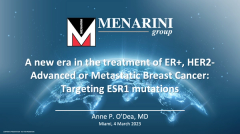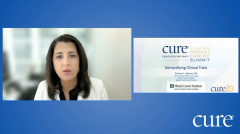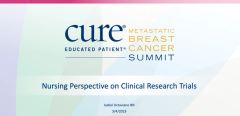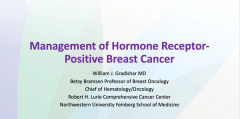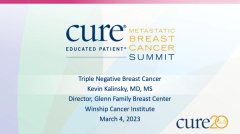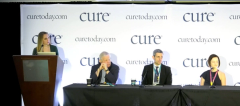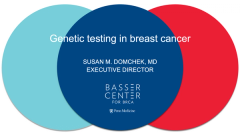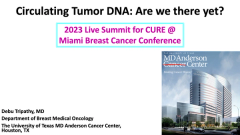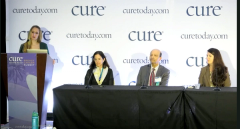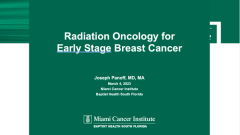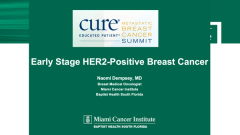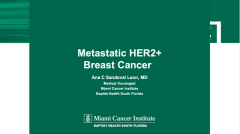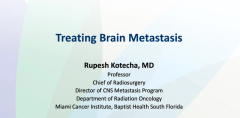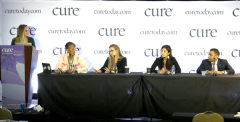
Educated Patient® Breast Cancer Summit at MBCC Radiation Therapy Presentation: March 4, 2023
Watch Dr. Joseph Panoff, from Miami Cancer Institute, Baptist Health South Florida, discuss radiation therapy in early stage disease during the CURE Educated Patient® Breast Cancer Summit at MBCC.
Episodes in this series

While there have been many advances made in the breast cancer treatment paradigm, radiation therapy remains a mainstay in early stage disease, according to Dr. Joseph Panoff.
At the CURE® Educated Patient® Breast Cancer Summit, held live and virtually at the Miami Breast Cancer Conference, Panoff, a radiation oncologist specializing in breast cancer at the Miami Cancer Institute, Baptist Health South Florida, presented radiation treatment options for early-stage breast cancer patients.
Radiation therapy works by damaging the DNA of tumors and cancer cells, causing them to stop replicating and spreading within the body. This ultimately stops disease from progressing while also killing the existing tumor and allowing the body to remove the dead cells like any other non-cancerous tissue.
While radiation therapy can be extremely effective when correctly administered, there are risks, such as damaging surrounding healthy cells while attempting to irradiate the original tumor.
Panoff explained that treating breast cancer with radiation therapy can differ from other cancer types because patients will almost always receive radiation after surgery to eliminate whatever cancer cells remain, and radiation oncologists strive to use very little radiation on patients in general.
In modern radiation therapy “the trend has been de-escalation. There are some patients where we don't treat (with radiation) at all,” Panoff said in an interview with CURE®. “We now do what's called hypofractionation — we do a shortened treatment scheme for the majority of our patients, which we really didn't do 10 years ago. There are other (disease) sites that do that, but (breast cancer radiation oncologists) really have pioneered that shorter course of radiation, in addition to partial breast (radiation). So now we're not even treating the whole breast anymore for many patients that are candidates. I think that sets us apart from other organ sites.”
Though some patients worry radiation is a more severe or dangerous treatment course than surgery or chemotherapy, Panoff was clear that radiation oncology has made many advancements and is now one of the safer treatment options in those who need it. “Modern radiation is very well tolerated, for the most part,” he said. “Patients do really well, and it has a very good toxicity profile, especially when you compare it with chemotherapy.”
Successful radiation therapy is one of the most effective treatment options to reduce the risk of disease recurrence, but Panoff emphasized compliance with the post-radiation care plan is imperative to truly reduce risk of recurrence. Patients with breast cancer who are prescribed endocrine therapy after radiation, but do not follow their treatment plan, see four times the risk of recurrence than those who follow their entire plan.
If you are a candidate for radiation oncology, Panoff strongly discourages new patients from looking on the internet or speaking to friends to find educational materials about it. “Be careful using Google for radiation oncology education. I really mean that. There's a lot of misinformation, it will rarely help to Google,” he said. “Be careful speaking to your friends about it, because frequently, they're going to have either misinformed information or anecdotal stories from people who may have had radiation in a different era where we treated differently, and there was a lot more toxicity in the past.”
For more news on cancer updates, research and education, don’t forget to

